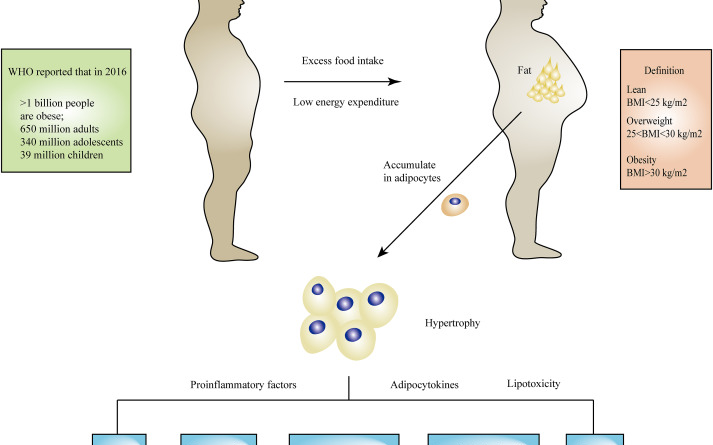The Heavy Toll: Exploring the Health Risks of Obesity
In today’s fast-paced world, where convenience often trumps health, the prevalence of obesity has reached alarming levels. Once considered a problem primarily in affluent societies, obesity now affects people of all ages, races, and socioeconomic backgrounds globally.
While its external manifestations are evident, such as increased body weight and size, its internal toll on health is often overlooked or underestimated. In this blog post, we delve into the multifaceted health risks associated with obesity, shedding light on the gravity of this widespread issue.
Understanding Obesity:
Obesity is a condition characterized by excessive accumulation of body fat, usually resulting from a combination of genetic, environmental, and behavioral factors. Body Mass Index (BMI), a measure of body fat based on height and weight, is commonly used to classify individuals as overweight or obese.
While BMI serves as a useful screening tool, it doesn’t account for factors like muscle mass or distribution of fat, which can affect health outcomes.
Cardiovascular Complications:
One of the most well-documented health risks of obesity is its impact on cardiovascular health. Excess body fat, particularly around the abdomen, increases the risk of developing conditions like hypertension (high blood pressure), dyslipidemia (abnormal levels of cholesterol and triglycerides), and type 2 diabetes.
These conditions, collectively known as metabolic syndrome, significantly elevate the likelihood of heart disease, stroke, and other cardiovascular events.
Respiratory Impairment:
Obesity can also impair respiratory function, leading to conditions such as obstructive sleep apnea (OSA) and obesity hypoventilation syndrome (OHS). In OSA, excess fat deposits in the upper airway cause intermittent blockages during sleep, resulting in disrupted breathing patterns and inadequate oxygenation.
OHS, on the other hand, involves impaired respiratory drive and gas exchange, contributing to chronic respiratory failure. Both conditions not only compromise sleep quality but also increase the risk of cardiovascular complications.
Varicose Veins:
Obesity poses significant health risks, particularly concerning vein health, such as varicose veins. In Tulsa, where lifestyle factors and genetic predispositions intersect, the prevalence of varicose veins among obese individuals is notable. Excess weight places increased pressure on veins, weakening their valves and leading to the pooling of blood, a common precursor to varicose veins.
These enlarged, twisted veins cause discomfort and swelling and elevate the risk of complications such as blood clots and venous ulcers. Addressing obesity through lifestyle modifications and seeking specialized vein care in Tulsa is crucial for managing varicose veins and reducing associated health risks.
Joint Problems and Mobility Issues:
Carrying excess weight places undue stress on the musculoskeletal system, particularly the joints. Obesity is a significant risk factor for osteoarthritis, a degenerative joint disease characterized by inflammation, pain, and stiffness.
Weight-bearing joints such as the knees, hips, and lower back are most commonly affected, leading to reduced mobility and functional impairment. Chronic pain resulting from osteoarthritis further exacerbates the sedentary lifestyle commonly associated with obesity, creating a vicious cycle of reduced activity and weight gain.
Psychological and Social Implications:
Beyond its physical effects, obesity can also have profound psychological and social consequences. Individuals living with obesity may experience stigma, discrimination, and negative body image, which can impact self-esteem and mental well-being.
Moreover, the pervasive societal emphasis on thinness as an ideal body type can contribute to feelings of shame and guilt among those struggling with weight management. These psychosocial factors not only exacerbate the challenges of managing obesity but also pose barriers to seeking help and support.
Addressing the Epidemic:
Addressing the multifaceted nature of obesity requires a comprehensive approach that encompasses both prevention and treatment strategies. Public health initiatives aimed at promoting healthy lifestyles, such as increasing access to nutritious foods and opportunities for physical activity, are crucial for preventing obesity from developing in the first place.
Additionally, interventions focusing on behavioral changes, including dietary modifications, regular exercise, and stress management, play a pivotal role in managing obesity and its associated comorbidities.
Conclusion
In conclusion, obesity is a complex and pervasive health issue with far-reaching implications for individuals and society as a whole. From cardiovascular complications to respiratory impairments and psychological distress, the toll of obesity extends beyond its visible manifestations.
Recognizing obesity as a chronic medical condition rather than a mere consequence of personal choices is essential for fostering empathy, understanding, and effective interventions. By addressing the root causes and implementing evidence-based strategies, we can mitigate the health risks associated with obesity and improve the quality of life for millions worldwide.

